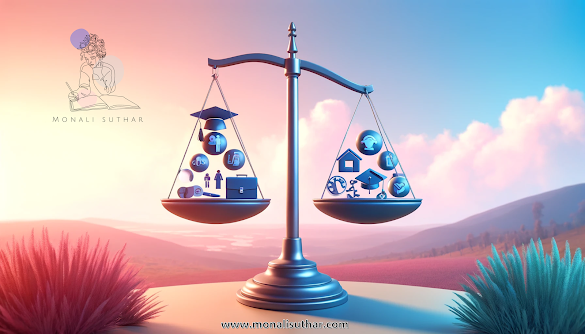Feminism: What Does True Equality Look Like?
Feminism has sparked
debates worldwide, inspiring discussions about women’s rights,
responsibilities, and equality. But is feminism always understood in the right
way? Is it about demanding rights alone, or should it also involve
responsibilities? Does true equality mean both men and women sharing
opportunities and burdens equally? These are the questions we must ask
ourselves to understand the heart of the matter.
What Is Feminism
Really About?
- Is feminism simply about fighting for
equal rights, or is it about creating balance?
- If women seek equal opportunities, should
they also embrace equal responsibilities?
- Can equality exist without mutual respect
and understanding between men and women?
When women demand
equal pay, leadership roles, or representation, does it also mean they should
contribute equally to financial obligations at home? If a man helps with
cooking and cleaning, shouldn’t a woman also support him in paying bills or
managing emergencies? Or is equality selective, applying only when it benefits
one side?
Are Modern
Interpretations of Feminism Balanced?
Social media and pop
culture have brought feminism into the spotlight, but do they always present it
accurately?
- Does social media sometimes amplify
extreme views, portraying men as enemies rather than allies?
- Can focusing only on rights without
discussing responsibilities lead to misunderstandings about feminism?
- Are all women truly seeking equality, or
are some influenced by the idea of freedom without accountability?
For example, when some women demand maintenance or support after divorce but leave their responsibilities behind—like taking care of their children—does this align with the principles of true feminism? Or are these exceptions that tarnish the broader movement?
What Do Real-Life
Examples Teach Us?
- In India, cases of misuse under laws like
Section 498A have been reported. While these laws are meant to protect
women, what happens when they are used falsely? Can this harm the very
cause they are meant to support?
- Globally, in countries like the U.S.,
women often take on more unpaid domestic work even when both partners work
outside the home. Is this fair? And how do countries like Sweden and
Norway achieve a more balanced sharing of responsibilities?
Do divorce cases where
women seek financial maintenance without fulfilling their parental or marital
duties reflect the spirit of feminism? Or are these isolated incidents that
receive undue attention, overshadowing genuine struggles for equality?
Does Media Help or
Hurt the Feminism Movement?
- Are songs like "Narivad Ki Jay
Kehke" pointing out real flaws in how feminism is practiced, or are
they oversimplifying a complex issue?
- Does the media’s focus on extreme
examples, like women who misuse legal protections, harm the overall
perception of feminism?
- Can popular culture foster understanding
between genders, or does it sometimes widen the gap?
When social media
amplifies divisive narratives, does it help the cause of feminism, or does it
create resentment and misunderstanding between men and women?
What Does True
Equality Look Like?
- If women want equal representation in
workplaces, should men also have equal representation in family
responsibilities, like parenting and household chores?
- When women demand freedom in their
personal lives, should they also consider the responsibilities that come
with that freedom?
- Can real feminism exist without mutual
support, love, and compassion between genders?
Does equality mean
only demanding rights, or does it mean building partnerships where both men and
women contribute to the emotional, financial, and social well-being of their
families and communities?
How Should Feminism
Move Forward?
- Should feminism focus more on creating
harmony rather than competition between men and women?
- Can feminism succeed if it fosters
entitlement or arrogance rather than mutual respect?
- Is the goal of feminism to empower women
at the expense of men, or to create a fair and balanced society for
everyone?
When both genders work
together, sharing joys and burdens equally, does it create a better world for
everyone?
What Do You Think?
These questions aren’t
meant to give you answers but to encourage you to think. What does feminism
mean to you? Do you believe in a world where men and women are true partners,
supporting each other equally? Or do you see feminism as something else entirely?
It’s up to each of us
to reflect, understand, and decide how we can contribute to a fair and
compassionate society. What will your perspective be?
Monali Suthar,
monalisuthar1210@gmail.com
www.monalisuthar.com




Comments
Post a Comment